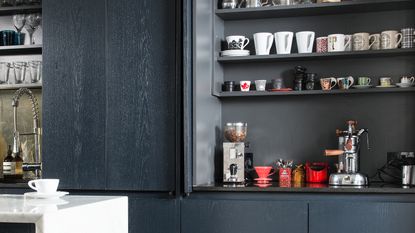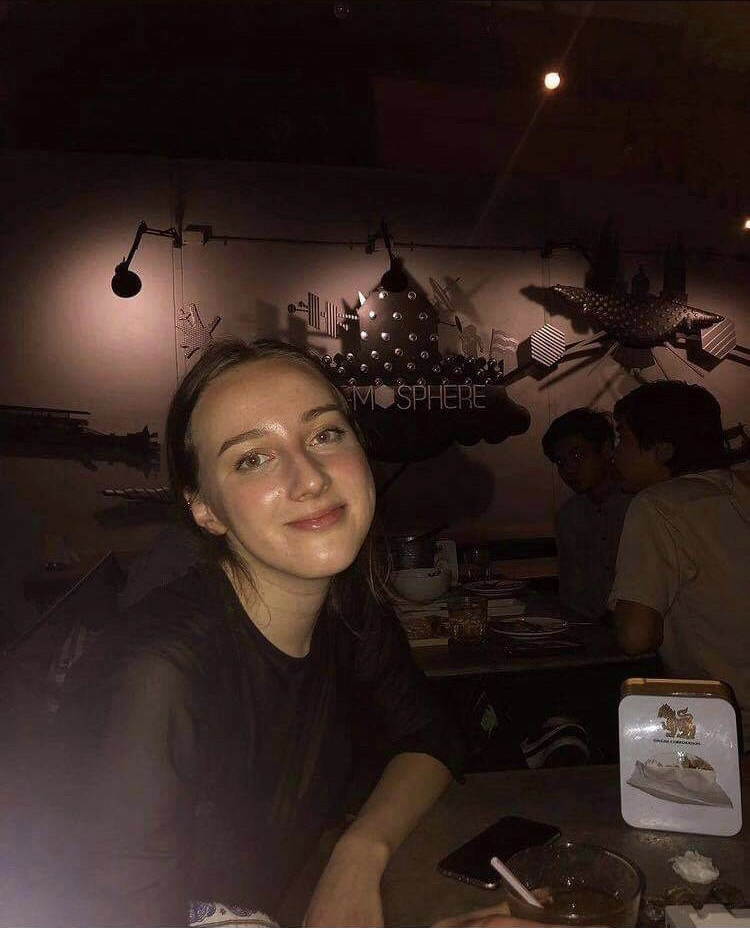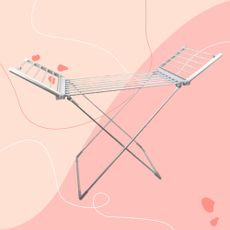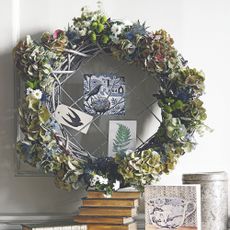I worked out the cheapest way to make a cup of coffee at home
Looking to ditch takeaway coffees in the New Year? I calculated which cup of coffee is the cheapest overall to make at home


There are many ways to enjoy a cup of coffee at home, from a simple cup of instant coffee using the kettle all the way to a freshly ground cup made in a bean to cup machine. But if you're considering investing in a flashy coffee machine to save money on a takeaway latte it is worth thinking first about what is the cheapest way to make a cup of coffee at home.
How you enjoy your coffee at home comes down to personal preference; you may prefer a quick and easy brew and be happy with the taste of an instant coffee, or you may want to enjoy the taste of a latte or cappuccino from one of the best pod coffee machines. However you take your favourite drink, it's worth understanding exactly how much each cup is costing you, as unsurprisingly, there is a difference between them.

Katie Sims has been writing content for Ideal Home since spring 2022. Over the past couple of weeks she has tested the Bosch Tassimo Finesse by making coffees daily for herself and her family. Coffee is an essential part of her morning routine, she usually has one to start the day and one as late morning pick me up. Lattes are her first choice, but she also loves an americano with a flavoured syrup for sweetness.
'The cost-of-living crisis, coupled with Christmas is forcing people to become more creative with money-saving methods,' says Jonny England, Director of Coffee, Löfbergs. 'Making your daily coffee at home is a great place to start.'
I asked the experts and did some calculations to work out what is the cheapest way to make a cup of coffee at home, so keep reading to find out which type of coffee will save you the most pennies.

What is the cheapest way to make a cup of coffee at home?
I broke down the cost of each type of coffee you can make at home, and rank them from cheapest to most expensive: instant, filter, bean to cup, and pod, based on the upfront cost, supplies, and energy.
I then took into consideration the current prices of takeaway coffees from a few popular branches, to see if it's cheaper to enjoy your favourite drink at home.
Cheapest: Instant coffee
- Upfront cost - The best kettles range from anywhere between £25 and £80.
- Supplies - Instant coffee is relatively cheap. You can buy a 100g jar of Nescafe coffee for £2.50 from Tesco for example, which can serve up to 55 cups of coffee.
- Energy - According to GROHE, a 3 kW kettle with a 1.7 litre capacity would cost £0.36 per day, if it was boiled twice a day at full capacity.
It's probably no surprise to learn that instant coffee is the cheapest type to make at home. Though boiling a kettle actually uses more energy than using a coffee machine, instant coffee is still the cheapest to make because of the low price of the coffee itself.
There's also the cost of the kettle to consider as well, though this will likely be significantly cheaper than the cost of a coffee machine. This is good news if you're a fan of the taste of instant coffee, as it will be the most cost-effective way to enjoy your favourite drink.
Filter coffee

- Upfront cost - aside from the kettle, you'll need to purchase a cafetiere, which usually range between £10 and £40.
- Supplies - a 250g bag of ground coffee costs around £5, which would make around 35 cups of coffee.
- Energy - filter coffee is made with hot water from the kettle - a 3 kW kettle with a 1.7litre capacity would cost £0.36 per day, if it was boiled twice a day.
A 250g bag of ground coffee costs around £5. This bag would make around 35 cups of coffee, meaning each cup is around 14p. But filter coffee requires the use of a cafetiere as well as a kettle, which is why it's not quite as cheap as instant coffee in the first instance. Depending on the type of cafetiere you buy, you may need to buy filter papers as well.
There isn't a huge difference in cost for making a cup of instant and filter coffee, though a lot of people would say there's a big difference in taste. So if you prefer the taste of ground coffee to instant, but have previously thought of instant as the significantly cheaper option, this may be your sign to get yourself a budget-friendly cafetiere and a bag of ground coffee, as the difference in price is only marginal.
Bean to cup machine

- Upfront cost - bean to cup coffee. machines can land anywhere between the £500 and £1000 mark.
- Supplies - A 1kg bag of coffee beans costs around £15, though again, prices vary. A bag of this size would produce around 142 cups of coffee.
- Energy - a 1.45 kW machine will cost around 52p for every hour of use (based on the energy price cap freeze) - one hour of use can produce 60 cups of coffee.
Bean to cup coffee machines are certainly the most expensive type of coffee machine to buy upfront. Our top-ranking bean-to-cup machine is the De'Longhi Dinamica Plus, which retails at £949.
A 1kg bag of coffee beans costing around £15 equates to around 11p per cup of coffee. And in terms of energy, bean-to-cup machines are fairly efficient. The De'Longhi machine uses 1.45 kW of energy per hour, but it only needs to use energy for 60 seconds to make one cup of coffee. To work out the running costs of your coffee machine, you’ll want to multiply your consumption in kWh by the price you pay for electricity per kWh.
It just takes a while for the upfront investment of the machine to be paid off. Bean-to-cup machines are a firm favourite of many however because they allow you to enjoy a cup of fresh coffee in the comfort of your own home, which for many people is worth the price of the machine.
Most expensive: Pod machine

- Upfront cost - the best pod coffee machines cost between £80 and £200.
- Supplies - coffee pods are quite pricey. The Tassimo Costa Latte pods are £5.99 for a pack of 8. The Nespresso Starbucks pods are £3.75 for a pack of 10.
- Energy - similar to a bean to cup machine, a 1.4 kW machine will cost around 50p for one hour of use. Depending on the machine, one hour of use will make around 25 cups of coffee.
Pod coffee machines are cheaper to buy than bean to cup machines. The top-ranking machine from our reviews is the Lavazza, A Modo Mio Deséa Coffee Capsule Machine, which is currently available at Amazon and John Lewis for £159. Pods can be purchased alongside this at around £10, which will get you 36 cups of coffee. It's, therefore, more expensive to enjoy a cup of coffee from a pod machine compared to a bean-to-cup machine, despite their cheaper upfront cost.
'Although a pod machine may seem appealing upfront due to the low cost, buying the pods will really add up over time,' says William Hobbs, Energy Expert, Myjobquote.co.uk. 'This means, in most cases, you’ll end up paying more for pod coffee over the years.'
T-Disc pod machines are also a popular choice. I've reviewed the Bosch Tassimo Finesse machine myself, and being able to enjoy a latte or a cappuccino at home feels like a luxury that's worth the extra money. But alongside the cost of the coffee pods, descaling tablets need to be purchased to keep the machine in healthy condition, so it's an ongoing investment. Instant and filter coffee are the more affordable options.
Takeaway coffee

We might love popping over to our favourite coffee shop and getting a takeaway coffee, but this is not the most cost-effective way of enjoying our favourite drink. A small latte from Starbucks currently costs £2.25. From Costa, it's £2.15 and from Cafe Nero, it's £2.05.
This means that to enjoy a small latte every day from Starbucks, it would cost £821.25. Yikes. Most of us don't visit Starbucks every day, so let's say you wanted to get a Starbucks latte once a week. That's still £117. It's far more cost-effective to invest in a bean to cup machine or a pod machine, where you'll be paying pennies for each cup of coffee in comparison.
What is the cheapest way to make a cup of coffee?

So the results are in, and I can reveal that instant coffee is the cheapest cup of coffee to make at home, closely followed by filter coffee. The energy costs of running a kettle are likely to be higher than that of a coffee machine, but it's the cost of supplies that makes instant coffee the cheapest.
'If you choose to make instant coffee, you can save some significant money, but you must remember that it costs money every time you boil your kettle,' says energy expert William. 'A kettle with a 3kW power rating takes around 52 seconds to boil 300ml of water. This comes out at 0.043kWh of power. This means that it would cost around £1 - £1.50 to make 100 cups of coffee, depending on your tariff.'
Pod machines are the least cost-effective way of making coffee at home. 'Based on the cost of drinking two cups of espresso per day over five years, you can expect to pay around £800 - £1200 for pod coffee, and around £600 - £1000 for bean to cup coffee', explains William. 'This includes the cost of the machine itself and the supplies for making the coffees.'
Is it cheaper to make your own coffee or buy it?
It's definitely cheaper to make a cup of coffee at home than buy it. If you want to enjoy a latte or cappuccino, you'll need to invest in either a bean to cup machine or pod machine, then the ongoing cost of beans or pods. This is still going to be a lot cheaper than visiting your local coffee shop each day.
'An average cup from your favourite café is £3.40, but, if you have a 450g bag of ground coffee at home, each homemade cup could only cost you 7p!' says coffee expert Jonny England. 'So, by just making this small lifestyle change you can save over £860 a year.'
Get the Ideal Home Newsletter
Sign up to our newsletter for style and decor inspiration, house makeovers, project advice and more.

Katie Sims has been writing for Ideal Homes since spring 2022. She qualified from her Master’s in Media and Journalism in 2021 and has been writing freelance since. She has worked on Ideal Home’s ecommerce team where she researched the best home products on the market, and on the news team, researching the latest trends for feature pieces.
-
 George Home is selling a heated airer for the lowest price we've seen – it's even cheaper than Aldi
George Home is selling a heated airer for the lowest price we've seen – it's even cheaper than AldiSnap up this winter must-have at a budget price
By Jullia Joson
-
 Frankie Bridge’s reeded glass bathroom door is the height of 'sophistication' – but we've found a way to fake it for £10
Frankie Bridge’s reeded glass bathroom door is the height of 'sophistication' – but we've found a way to fake it for £10Frankie Bridge champions hotel-style living with a finishing touch to her bathroom – experts say it’s ‘sophisticated, decorative and functional’
By Sara Hesikova
-
 4 timeless wreath ideas that work all year round – not just for Christmas
4 timeless wreath ideas that work all year round – not just for ChristmasWreaths are set to be one of the biggest interiors trends of the year – so why not embrace them no matter the season?
By Sara Hesikova


